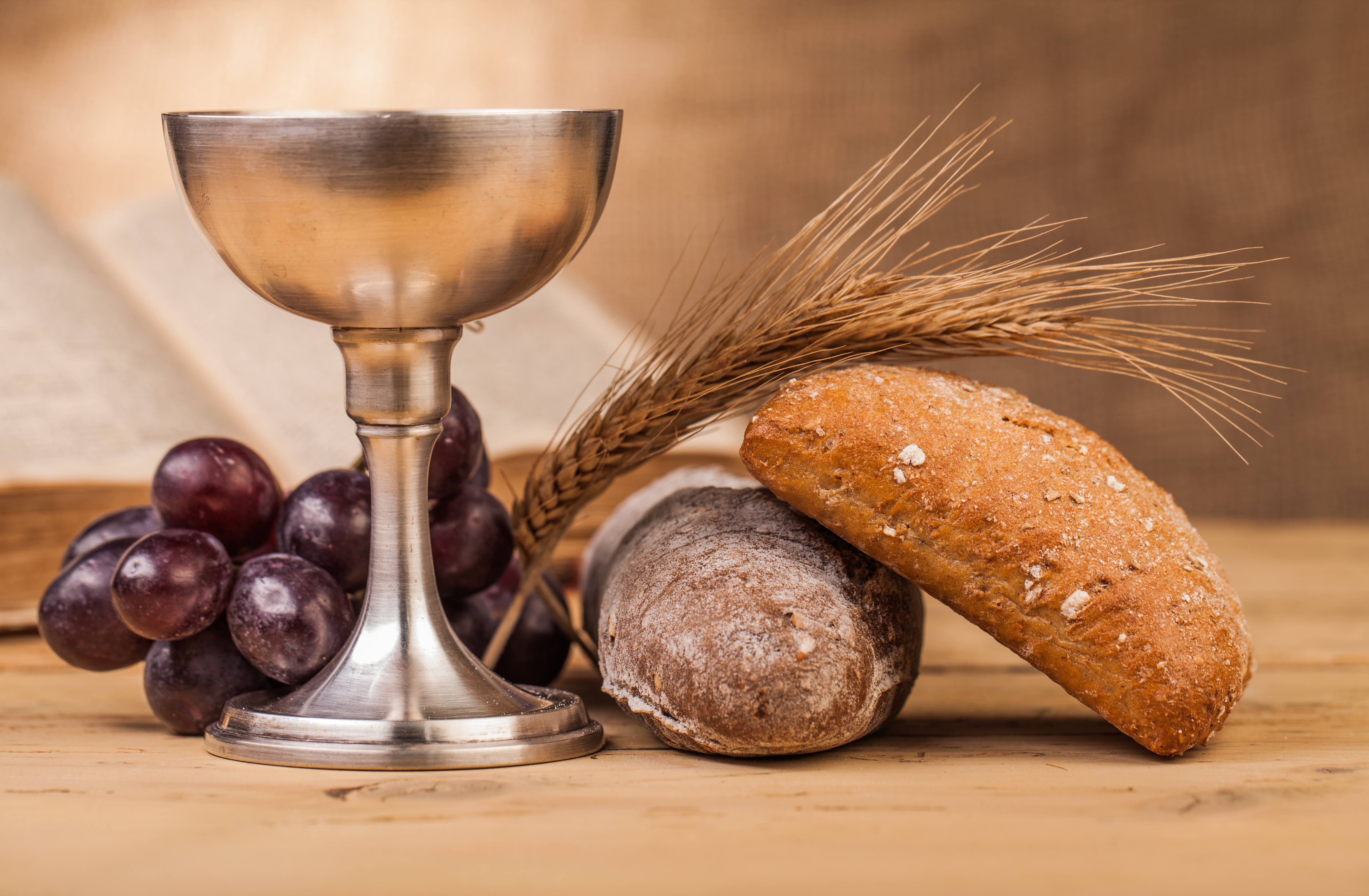
Understanding Communion: Introduction
Published August 20, 2024
One of the most significant and difficult questions of Christian theology is the understanding of the Lord’s Table.
I believe there are three reasons why believers should have a more thorough, doctrinal understanding of the Lord’s Supper.
First, the Lord’s Supper is a neglected doctrine. Whether it’s because of controversy or apathy, Christians simply don’t spend much time thinking about the Lord’s Supper. We might be aware of some historical arguments about the Lord’s table, and now perhaps assume (wrongly) we understand it. Believers must grasp this doctrine because it is vital to our life together in Christ.
Second, a misunderstanding of this doctrine causes a failure to understand the significance of coming to the Lord’s table. As we have the elements in hand, what should be happening in our hearts? Furthermore, how, if at all, does coming to the table impact our walk and relationship with Christ? Is there anything special that takes place only at the table? Sometimes people say they don’t want to take communion too frequently because it devalues the significance of it, which generally betrays their misunderstanding of what happens at the Lord’s table.
Third, coming wrongly to the Lord’s table is one of the few sins in the New Testament where God explicitly threatens death as discipline (1 Corinthians 11:29-32). Certainly, the Lord’s discipline for any sin could be anything up to and including death to prevent believers from shipwrecking our salvation. Here, though, there is one specific area of our Christian lives where we are told that if we do this repeatedly in an unworthy manner, it could cost us our lives.
In our experience as evangelicals, the Lord’s Supper is probably one of the least controversial things we do as a church – but that has not always been the case.
Before the Protestant Reformation, the Lord’s Supper was a flashpoint of controversy. In the year 1214, the Roman Catholic Church officially adopted the doctrine of transubstantiation, which is the belief that the elements become Christ’s literal body and blood. Englander John Wycliffe later rejected this teaching, saying the bread and the cup were indestructible. Wycliffe’s teaching then influenced Jan Huss, who was burned at the stake for his teachings about the Lord’s Supper – among other things contrary to Roman Catholic dogma. These two men were widely influential for the leaders of the Reformation, such as Luther and Calvin.
The leading reformers agreed about many doctrines, including Christ’s person and work, justification by faith alone, and Scripture’s authority; but one area of irreconcilable differences was their understanding of the Lord’s Supper. Ironically, the place where believers were supposed to gather in unity became a sharp point of division among men who agreed so substantially on other central doctrines! In fact, entire denominations have arisen over disputes about the meaning and practice of the Lord’s Supper. So, this doctrine is of great significance to us, not only biblically, but historically as a movement of faithful followers of Jesus Christ.
Luke is the richest account on the Lord’s Supper of the four gospels as it contains details not found in Matthew and Mark. There are three words stemming from this passage that should mark our understanding of the Lord’s Supper.
Let’s start with gratitude.
If we would comprehend the Lord’s Supper, we must first understand we should partake of the bread and the wine with gratitude.
Jesus’ regular practice on earth was to give thanks before a meal. When we come to the Lord’s Supper, however, there is greater significance attached to Jesus giving thanks here because it is not primarily attached to the provision of food, but to salvation. Jesus points to his sacrificial death for sinners as the significance of the bread and the cup, and He instructs us to give thanks when we come to the table for God’s gracious provision of salvation.
We see examples of this targeted thanksgiving in Scripture, especially from the Apostle Paul. For example, in Romans 7:25, Paul thanks God for his salvation. In Romans 8, he thanks the Lord for His work through Jesus Christ. When Paul finishes expositing the doctrine of salvation and God’s mercy in Christ, he cannot do anything but extol God’s glory (Romans 11:36).
When we come to the Lord’s Table, we should have hearts that exclaim with Paul: “Thanks be to God through Jesus Christ our Lord for saving us, reconciling us to Himself, forgiving our sins, declaring us to be righteous, giving us His Spirit, and so much more.”
Paul, though, did not stop with thanking God for his own salvation. In Romans 6:17, Paul thanks God for the salvation of those Christians; and in 1 Thessalonians 1, Paul is filled with thanksgiving that the Thessalonians have been saved, that they repented, and that they trusted Christ. Sometimes, when we come to the Lord’s Table, we might have a sense of individualism, but this was a fellowship meal. We not only should be thankful that we have been saved through Christ, but that God has graciously saved people around us who trust in the Lord.
This gratitude is significant because it binds our hearts in unity. How can we sincerely thank God for putting someone in His church, but at the same time wish God would put them in another local body? Can we truly thank God, not only that He has saved us, but that He has saved people around us?
If Jesus could celebrate this meal with thanksgiving as He faced the cross, surely we can commemorate it with thanksgiving despite whatever or whomever causes us difficulties.
The second word to consider is life.
There is an inextricable link between bread and life, not only the Jewish culture of Jesus’ day, but in Jesus’ teachings as well. For example, Jesus taught His disciples to pray for their daily bread in the Lord’s Prayer. When Jesus fed 4,000, the disciples ask about bread to feed those people. Perhaps, though, the most important passage of all is John 6, where Jesus fed the crowd of 5,000 men and others. There, Jesus clearly highlights that He is the bread of life and that it is only through Him a person obtains eternal life.
As we consider this theological significance of life, we must understand that when we come to the Lord’s table, we are celebrating the life Jesus gives to all His children. Christians have spiritual life now (Ephesians 2:5); we are no longer walking corpses, but alive through Christ! Only believers understand, experience, and know this reality to be true.
The Lord’s Supper also reminds us that we have eternal life forever in God’s presence. Through the bread, we are reminded that whatever befalls us in this life, we have an eternity awaiting us in the Lord’s glorious presence. That bread is, in a sense, God’s confirmation of His promise.
This ordinance is also a reminder that our life is to be pure and holy. According to 1 Corinthians 5, we are to celebrate the Passover with the new unleavened bread, not in Old Covenant ways. Unleavened bread represents godliness, holiness, and righteousness. We are to live our lives to reflect God’s character and righteousness.
The final word that describes Communion is death.
As Jesus distributed the bread to His disciples, He spoke the words of institution (that have caused an enormous amount of theological debate): “This is my body which is given for you; do this in remembrance of Me.” These words, without question, point to Christ’s death. However, the words raise issues regarding the nature of the bread. Is the bread the body of the Lord?
There are four views on this subject: Transubstantiation, consubstantiation, spiritual presence, and memorial – along with some hybrid views. We will unpack this statement in the next post.




0 Comments